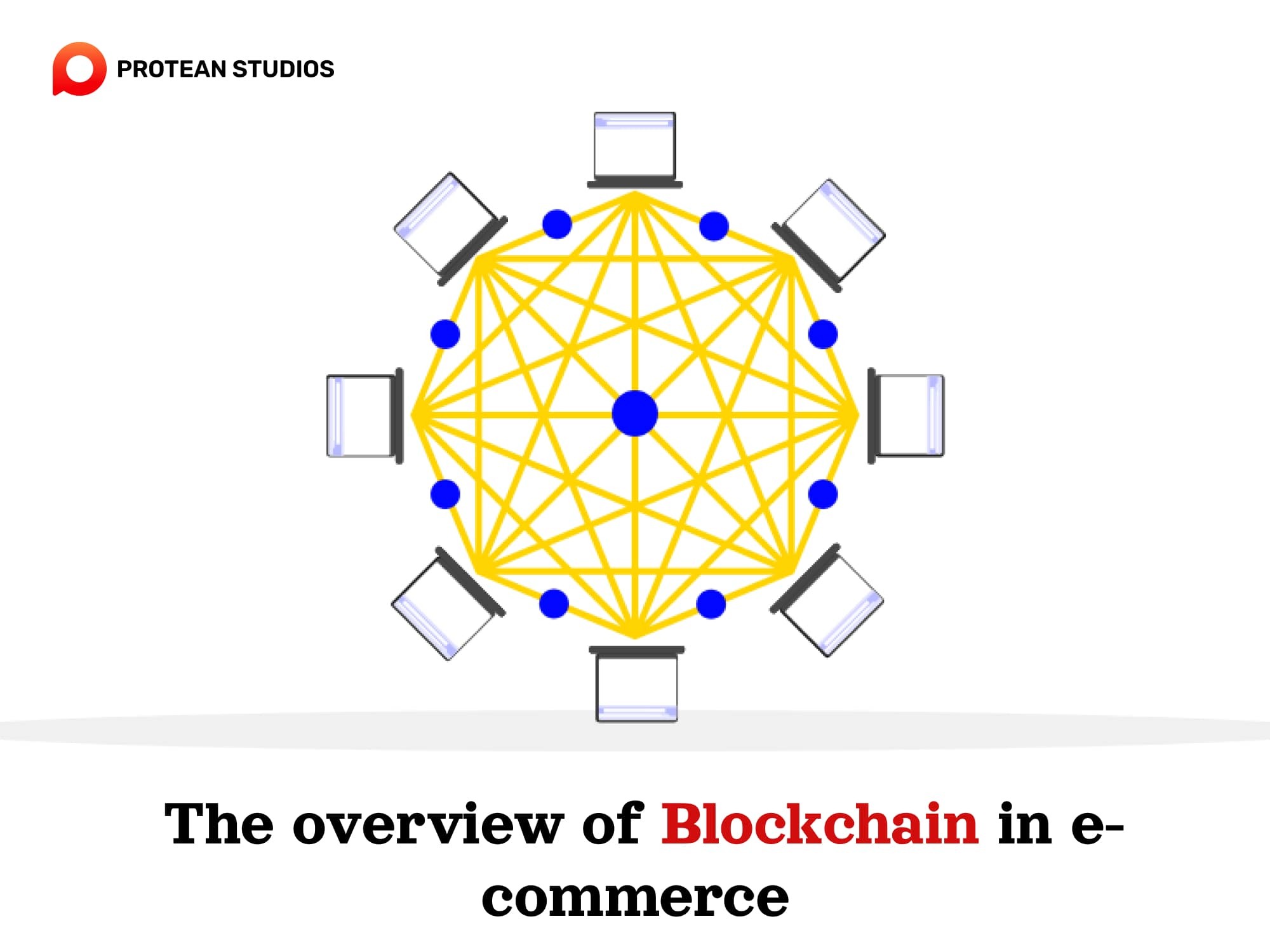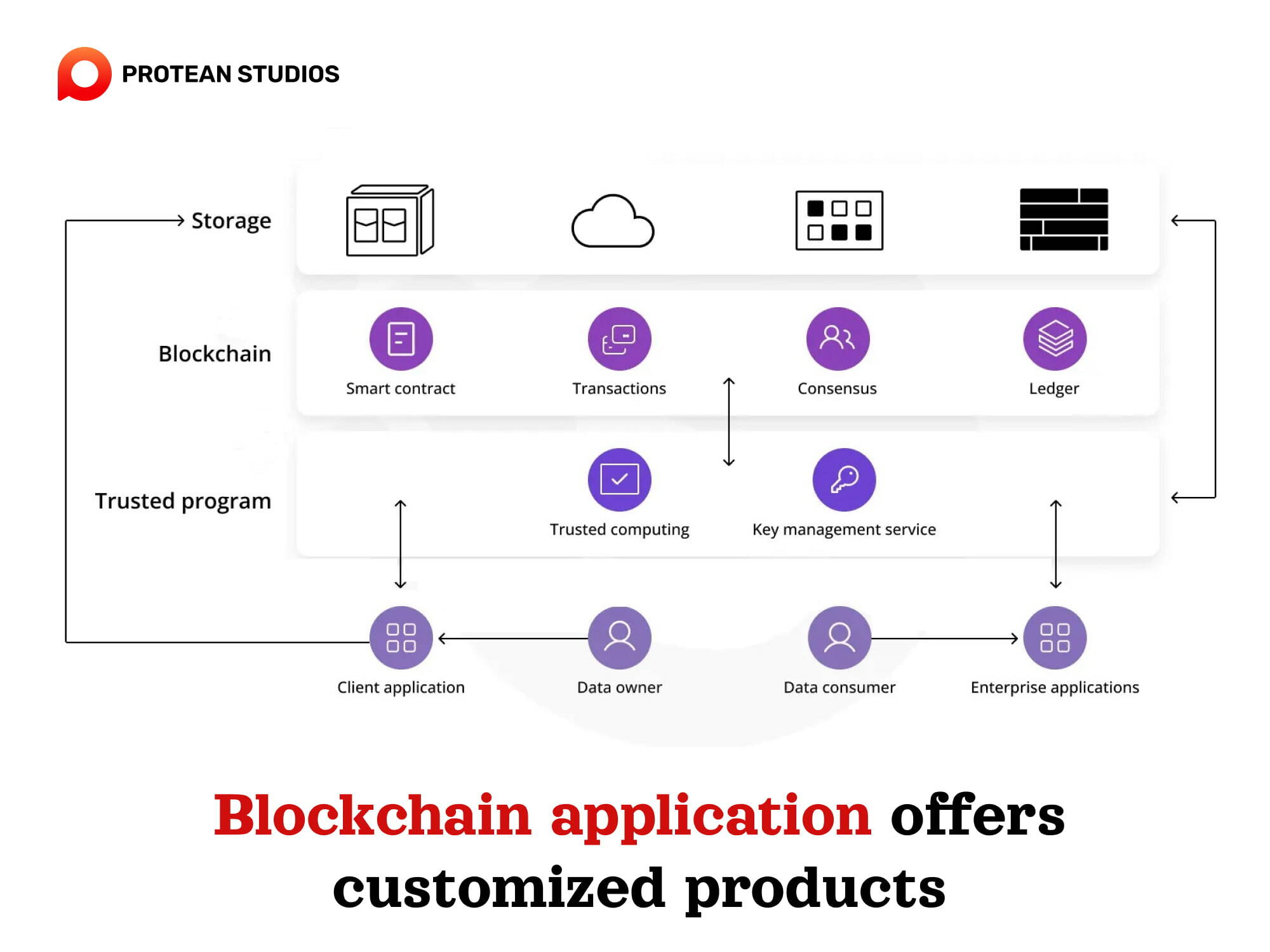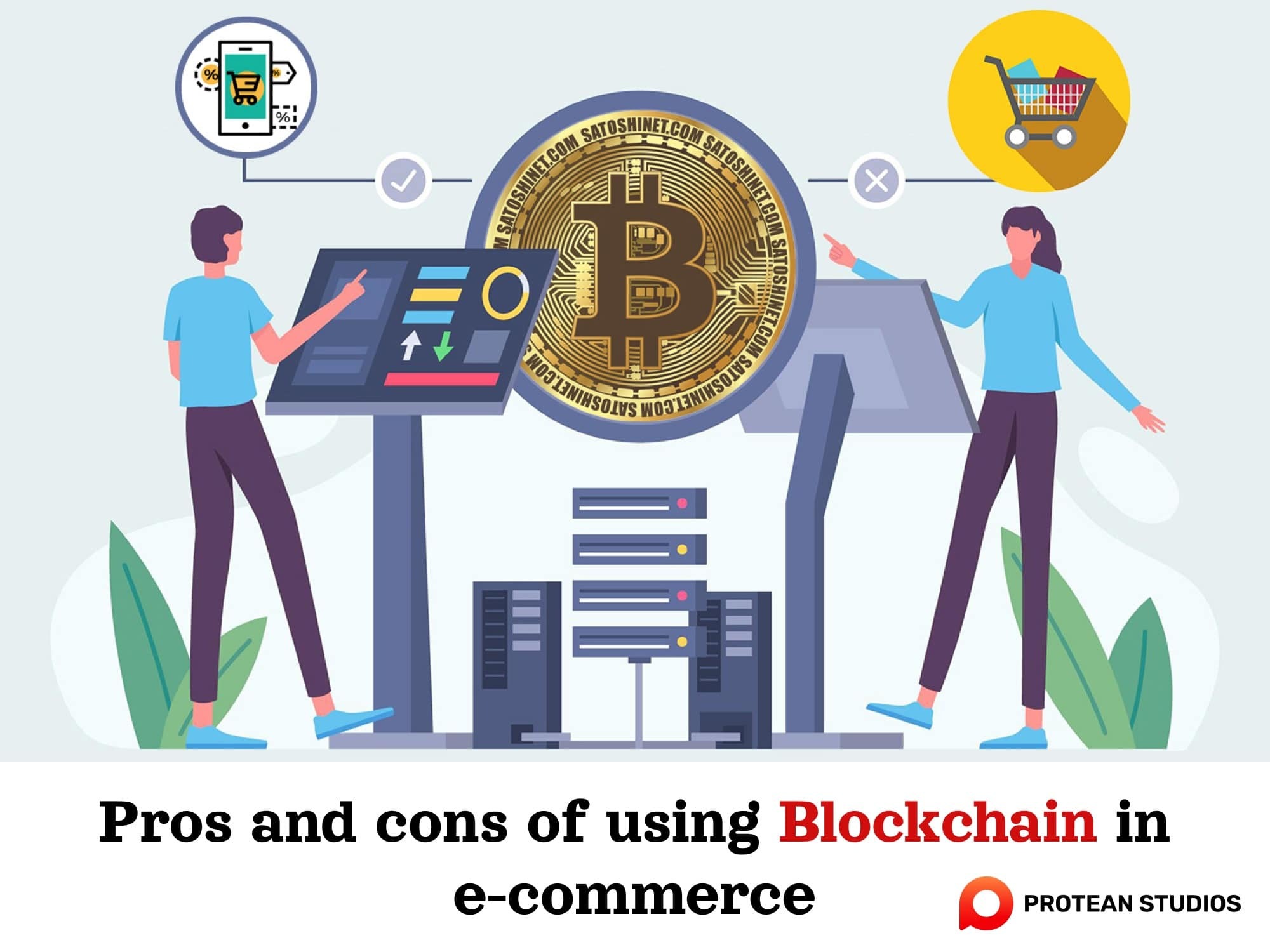In the evolving landscape of electronic commerce (e-commerce), the integration of blockchain is very useful to support online transactions. These blockchain applications also offer many benefits, like lower costs, faster delivery, enhanced security, and an improved customer experience. In this paper, we explore some of the applications of blockchain and the challenges and opportunities of its implementation in e-commerce.
I. The overview of blockchain in e-commerce
A decentralized network of computers records and verifies transactions using blockchain technology without the need for a central authority. It offers benefits for e-commerce, such as enhancing trust, transparency, security, and efficiency. For example, blockchain can enable peer-to-peer transactions between buyers and sellers without intermediaries or fees.
Besides, blockchain applications enable end-to-end traceability and transparency in the supply chain. Retailers and customers can track product origins, manufacturing processes, and logistics, ensuring authenticity and ethical sourcing.

According to the latest estimates, the blockchain industry was worth $7.4 billion in 2022 and is projected to reach $94.0 by 2027. This implies an impressive CAGR of over 66.2% in the next five years. The blockchain technology is gaining recognition and adoption across various sectors, as it offers a transformative user experience.
Although blockchain is an emerging technology, there are challenges and limitations to its adoption in e-commerce. But, it has the potential to transform this industry and create new opportunities for innovation and value creation.
II. Blockchain applications in the e-commerce sector
Blockchain applications have the potential to transform the e-commerce sector by providing various benefits, such as
1. Payment Processing
A new way of processing payments has emerged with blockchain technology, which offers a secure, transparent, and efficient way of transferring money. Blockchain relies on a distributed ledger system, which records all transactions in a public, unalterable ledger. thus ensuring high security and traceability.
It has many benefits for payment processing, such as security, transparency, cost efficiency, and speed, and is becoming more used in this field.
2. Peer-to-Peer Transactions
Blockchain can facilitate direct and trustless exchanges between buyers and sellers without the need for a third-party platform or intermediary. This can lower transaction costs, increase transparency, and empower users to control their data and identities.
3. Personalized Product Offerings
Blockchain enables e-commerce platforms to leverage smart contracts and tokenization. The goal is to create personalized and customized products and services for their customers.

The technology guarantees the reliability and accuracy of the data. It also allows for the development of more attractive and personalized product offerings. For example, customers can design their own products, tokenize their preferences, and exchange them with other users or vendors through blockchain applications.
4. Access to dependable product information
Blockchain also provides a reliable and immutable source of product information. For example, origin, quality, ingredients, and certifications This can enhance the trust and confidence of customers, especially in sectors such as food, health, and fashion.
Read more: IoT In Project Management: Benefits And Applications
5. Verified Customer Reviews
Thanks to this technology, it ensures that customer reviews are authentic, verified, and tamper-proof. Blockchain also incentivizes customers to provide honest and constructive feedback by rewarding them with tokens or discounts.
6. Enhanced Supply Chain Optimization
Blockchain helps improve the efficiency and visibility of the supply chain by tracking the movement and status of products from the source to the destination. Blockchain also enables smart contracts to automate processes and transactions along the supply chain. For instance, inventory management, quality control, and delivery confirmation
III. Pros and Cons of Using Blockchain in E-Commerce
When using blockchain applications in the e-commerce industry, there are both advantages and drawbacks, as explained below.

1. Advantages
Some of the advantages of using blockchain in e-commerce are
Enhanced security: encryption and immutability characterize blockchain transactions; they ensure that hackers or fraudsters cannot alter or tamper with them. This reduces the risk of data breaches, identity theft, and payment fraud that plague online shopping.
Increased transparency: Blockchain transactions are visible and verifiable by anyone on the network, creating a trustless system that does not rely on third parties. This can improve customer confidence, loyalty, and satisfaction, as well as reduce disputes and chargebacks.
Reduced costs: Blockchain transactions can cut or reduce the fees and commissions charged by intermediaries such as banks, payment processors, and platforms. This can lower the operational costs for both merchants and customers and increase profit margins and savings.
Enhanced supply chain management: Blockchain allows tracking and tracing of products throughout the supply chain. thus enhancing transparency and ensuring the authenticity of goods.
Increased trust: Blockchain can help to build trust between buyers and sellers by providing a secure and transparent platform for transactions.
2. Disadvantages
In the e-commerce field, there are some challenges and limits when using blockchain applications, like
Limited scalability: Blockchain transactions have a limited capacity and speed, depending on the consensus mechanism and network size. This can create bottlenecks and delays in processing high volumes of transactions, especially during peak periods or events.
High energy consumption: This application requires a lot of computational power and electricity to confirm and secure the network. This can have a negative impact on the environment and the sustainability of the technology.
Regulatory uncertainty: Blockchain transactions are subject to different legal and regulatory frameworks in different jurisdictions, which can create confusion and complexity for e-commerce businesses. Some countries may have strict or prohibitive rules on the use of cryptocurrencies, smart contracts, or digital assets, while others may have no clear guidance or standards at all.
IV. Wrap-up for the blockchain application in e-commerce
Blockchain technology holds the power to revolutionize the e-commerce industry. It addresses many of the challenges that businesses and consumers face today. By providing a secure, transparent, and decentralized infrastructure, blockchain can create a more trustworthy and efficient e-commerce ecosystem. As blockchain adoption continues to grow, we can expect to see even more innovative applications emerge, further shaping the future of e-commerce.
In conclusion, the blockchain applications in e-commerce hold immense promise. It offers a range of benefits, from enhanced security and transparency to streamlined processes through smart contracts.
I trust this overview proves useful. Feel free to ask via contact if you have any further questions.




